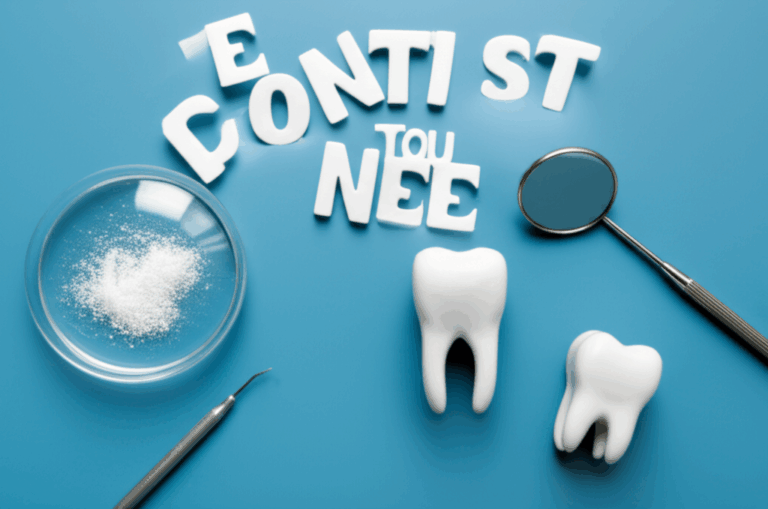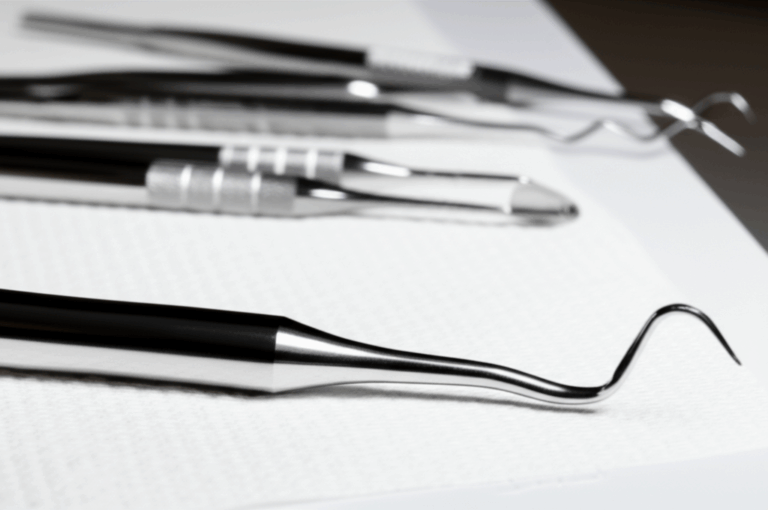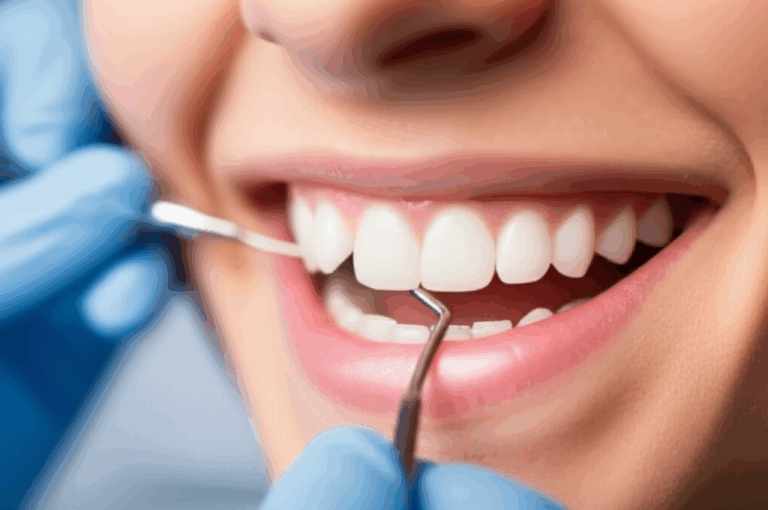
Can a Dentist Bill You 5 Years Later? Understanding Dental Debt & Your Rights
It’s never good to get a bill you didn’t see coming—especially if it’s for dental work from five years ago! This article walks you through what to do about an old dental bill, explains your rights, and shows you easy steps to deal with a dentist that bills you years later. If you’re feeling lost or worried, don’t stress. We’re here to help. By the time you finish reading, you’ll know what to do with old dental bills and how to protect yourself.
Table of Contents
What Is a Dental Bill and Why Might It Come Years Later?
Most people hope to get a bill from the dentist soon after their visit, or maybe in a few weeks. But sometimes, a dental bill shows up years after your appointment. It’s confusing, isn’t it? You may think: Did they mess up? Do I have to pay this?
There are lots of reasons why you might get a bill years later:
- The dentist’s office may have made a mistake in billing or lost your bill.
- Your insurance claim could have been turned down, or maybe they never sent it in.
- There might be a new person running the office or it changed owners.
- Maybe you missed seeing the original bill, or a small unpaid amount was left behind.
No matter what, getting a bill five years later is never nice. But there are laws and things you can do to help yourself.
Statute of Limitations: How Long Can a Dentist Bill You?
Here’s the big question: Is there a time limit for a dentist to ask for money? This depends on something called the statute of limitations.
What Is the Statute of Limitations?
The statute of limitations tells you how long someone has to get money from you—like asking you for old bills. After this time, the dentist can’t usually take you to court. Every state has its own laws.
Check the Table!
| State | Written Contract | Oral Contract |
|---|---|---|
| California | 4 years | 2 years |
| Texas | 4 years | 4 years |
| New York | 6 years | 6 years |
| Florida | 5 years | 4 years |
| Illinois | 10 years | 5 years |
| Average | 3-6 years | 2-5 years |
Table: Statute of limitations for debt (these are common times—check your own state to be sure!)
If your dentist sends a bill after this law runs out, they maybe can’t make you pay it. You still might owe money, but you don’t have to pay it if the law is on your side.
Common Reasons for Delayed Dental Bills
Why would you get a dental bill years after your visit? Here are the top reasons:
Billing Mistakes and Staff Changes
Offices can make errors—maybe they put in the wrong address or forgot to send the bill. If workers change or the owner changes, old bills can pop up.
Insurance Problems
Maybe they sent your bill to your insurance but the insurance turned it down, or the bill wasn’t sent in right. Sometimes, if it’s not done on time, the office gets the money from you instead—even years later.
Missed or Leftover Balances
Life gets busy. Maybe a piece of the bill wasn’t paid and you didn’t notice. Later, during a check of the office records, they find the missing piece and send you the bill.
To sum up: The bill isn’t always your fault, but you still need to know what to do about it.
Can a Dentist Send Me to Collections for Old Debts?
Worried your bill will go to collections? It happens, but there are rules for collections too.
What If a Dentist Sends a Debt to Collections?
A dentist can try to collect—no matter how old the debt is. But the Fair Debt Collection Practices Act (FDCPA) says collectors can’t trick or bother you. If the time set by the law is over, they can ask for payment but can’t sue you.
Need help with dental debts in collections? Sometimes, you can talk to a patient help person, lawyer, or your local consumer office for advice.
Watch Out: Don’t Start the Clock Over!
If you pay a little bit or say you’ll pay, you might start the time over for the statute of limitations! Always get all the details before paying.
What Should I Do If I Get a Dental Bill After 5 Years?
So, a bill arrives for old dental work. Here’s what you should do:
1. Don’t Worry or Pay Right Away
You might feel like just paying it to make it go away, but don’t! Paying even a little can restart the clock. Check your records and look up your state law first.
2. Ask for a Detailed Bill
Write to the dental office and ask for an itemized bill and proof you got the service. They should show you what you owe and when.
3. Look Up Your State’s Law
Find out your state’s statute of limitations for dental bills. Sometimes, an old bill is no longer allowed to be collected.
4. Check Your Insurance and Papers
Compare the bill to old insurance papers and your receipts. Did insurance pay? Is the bill even correct?
5. Disagree If the Bill Is Wrong
If you think it’s wrong, write a letter telling the office why. Explain what’s not right. Keep copies of what you send.
6. Make a Deal or Ask for Help
If you do owe money and the bill isn’t too old, you can work out a payment plan or a lower payment. If you’re unsure or the bill is high, talk to a lawyer.
How State Laws Change What Happens Next
Not all states follow the same rules for old bills. For example, in California, you get four years for a written contract. In New York, it’s six years. So where you live changes your rights.
Things to watch:
- If the time limit ran out, the dentist can’t get a court order against you—even if a collections agency scares you.
- For “oral contracts” (not written), the time can be less—like two years in California.
- If you moved, the rule from the state the dentist is in, or where you lived when work was done, may count.
If you need help, ask a lawyer in your state or talk to your state’s attorney office.
Could an Old Dental Bill Hurt My Credit?
No one wants their credit to go down because of a surprise dental bill. Here are the basics:
- A dental bill might show up on your credit report if it’s sent to a collection company.
- The Consumer Financial Protection Bureau says medical debt is common on credit reports.
- Most bad marks from dental or medical bill stay on your credit report for about 7 years. After that, they should be removed.
- Even if you can’t be sued for the old debt, a collection company may still try to get you to pay or add it to your credit file. You can ask credit bureaus to fix or delete old debts.
Want more details on dental bills and credit? Check china dental lab.
What Are My Rights When Facing an Unexpected Dental Bill?
Let’s help you take charge! You have rights when you’re dealing with old dental bills:
Right to Details
You can ask for a clear breakdown (itemized bill) of charges and what work was done. If a collection company is in the mix, they must prove you owe it under the law.
Right to Disagree
If you think the bill is wrong, you can send a letter. If it’s too old to collect, you can also say it’s past the time limit.
Right to Protect Credit
If an old dental bill drops your credit score, you can write to the credit bureaus and ask them to fix it, especially if the bill is a mistake or too old to be collected.
Remember: The office and collectors have to treat you fairly.
Preventing Surprise Dental Bills in the Future
Old bills are stressful. Here’s how to avoid surprises later on:
- Ask for a written estimate of costs from your dentist and see what your insurance pays.
- After your appointment, check your insurance paperwork (EOBs) to make sure insurance covered their part.
- If you don’t get a bill soon, call the dentist or your insurance to ask if there’s a mistake.
- Save your receipts and bills so you can find them if you get a surprise later.
- Pick a dentist with good billing and customer service, like those using advanced technology at digital dental lab services.
Good record-keeping saves headaches later.
Real-Life Example: Sarah’s 5-Year-Old Dental Bill
Let’s look at a real story:
Sarah Miller got a bill for a dental crown over five years after her visit. She thought her insurance had paid, or she’d paid her share. She never saw this bill before.
Sarah did this:
What happened: The dentist dropped the bill. It never hurt Sarah’s credit.
What you can learn: Knowing your rights works!
FAQs
Q: Can an old dental bill hurt my credit?
A: Yes, if it gets reported. But bills more than seven years old should fall off.
Q: What if I never got the first bill?
A: Dentists are supposed to send bills quickly, but keep your papers and be ready to speak up if you get hit with an old one.
Q: Do collection agencies have to follow the statute of limitations?
A: Yes. They can’t sue if the bill is past the legal time.
Q: Can a dentist take my house over an old bill?
A: Hardly ever. Only if they have a court win—and if the time to sue ran out, they can’t do this.
Q: What if I moved and missed bills?
A: Make sure the dentist knows your address, and always keep your visit records and insurance EOBs.
Key Takeaways
- Don’t panic: An old dental bill isn’t always the end of the story.
- Look up the statute of limitations in your state first.
- Ask for copies of the bill and compare them to your papers.
- Don’t pay until you know your rights, since paying can reset the clock.
- You can dispute bills that don’t make sense or are too old.
- Keep all dental papers after each visit.
- Pick dental offices with clear billing, like crown and bridge lab specialists.
- Ask for help (from a patient advocate, insurance, or lawyer) if things get hard.
Nobody likes surprise bills—especially from five years back. But with these steps, you’re ready to stand up for yourself and handle any dental billing shock with confidence.
For more about dental treatments and how easy talks make things better, check out services at a top dental ceramics lab that puts patients first!








